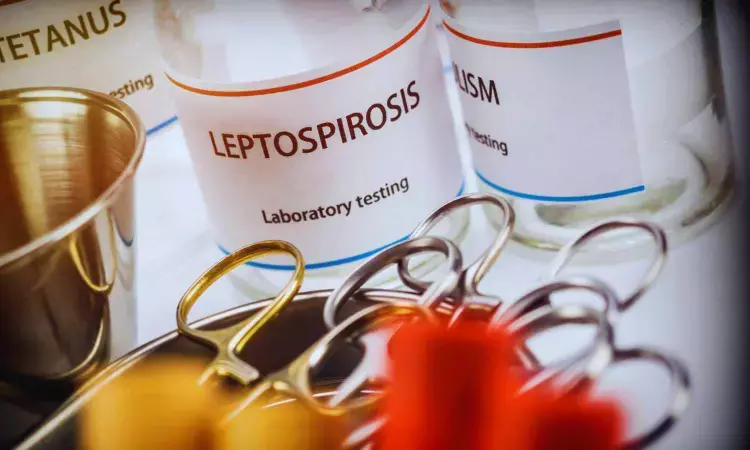- Home
- Medical news & Guidelines
- Anesthesiology
- Cardiology and CTVS
- Critical Care
- Dentistry
- Dermatology
- Diabetes and Endocrinology
- ENT
- Gastroenterology
- Medicine
- Nephrology
- Neurology
- Obstretics-Gynaecology
- Oncology
- Ophthalmology
- Orthopaedics
- Pediatrics-Neonatology
- Psychiatry
- Pulmonology
- Radiology
- Surgery
- Urology
- Laboratory Medicine
- Diet
- Nursing
- Paramedical
- Physiotherapy
- Health news
- Fact Check
- Bone Health Fact Check
- Brain Health Fact Check
- Cancer Related Fact Check
- Child Care Fact Check
- Dental and oral health fact check
- Diabetes and metabolic health fact check
- Diet and Nutrition Fact Check
- Eye and ENT Care Fact Check
- Fitness fact check
- Gut health fact check
- Heart health fact check
- Kidney health fact check
- Medical education fact check
- Men's health fact check
- Respiratory fact check
- Skin and hair care fact check
- Vaccine and Immunization fact check
- Women's health fact check
- AYUSH
- State News
- Andaman and Nicobar Islands
- Andhra Pradesh
- Arunachal Pradesh
- Assam
- Bihar
- Chandigarh
- Chattisgarh
- Dadra and Nagar Haveli
- Daman and Diu
- Delhi
- Goa
- Gujarat
- Haryana
- Himachal Pradesh
- Jammu & Kashmir
- Jharkhand
- Karnataka
- Kerala
- Ladakh
- Lakshadweep
- Madhya Pradesh
- Maharashtra
- Manipur
- Meghalaya
- Mizoram
- Nagaland
- Odisha
- Puducherry
- Punjab
- Rajasthan
- Sikkim
- Tamil Nadu
- Telangana
- Tripura
- Uttar Pradesh
- Uttrakhand
- West Bengal
- Medical Education
- Industry
Yale researchers develop novel test for leptospirosis

In a new study, Yale School of Medicine (YSM) researchers unveiled a novel diagnostic method for detecting leptospiral virulence-modifying (VM) proteins in the blood and urine of hamsters, an advance that could pave the way for early diagnosis of the tropical disease leptospirosis in humans and improved treatment options. The findings were published in the journal Microbiology Spectrum.
Found around the world, leptospirosis affects approximately 1 million people annually, with nearly 60,000 fatalities. The disease is caused by the bacterium Leptospira and is spread through the urine of infected animals. Despite the potential of the disease to cause severe illness when left untreated, early diagnosis has been a significant challenge due to the lack of sensitive and specific diagnostic methods.
The research, led by Yale’s Dr. Joseph M. Vinetz and his team, in collaboration with Luna Bioscience, a company founded by Vinetz to develop vaccines for emerging global infectious diseases, has led to the development of a monoclonal antibody (mAb)-based capture immunoassay. This assay detects VM proteins, a recently identified family of leptospiral proteins crucial for disease pathogenesis.
“We have long known that leptospirosis severely impacts multiple organ systems, leading to conditions like jaundice, acute kidney injury, and pulmonary hemorrhage,” said Vinetz, a professor of medicine (infectious diseases) at YSM. “Our discovery of these VM proteins as circulating exotoxins gives us a specific target for both diagnostics and potential therapeutic interventions.”
Leptospirosis is the first systemic bacterial disease mediated by a toxin — such as tetanus, botulism, or diphtheria — that has the potential for rapid antigen detection by a novel test, he added.
The research lays the groundwork for developing rapid, inexpensive diagnostics that can be used in resource-limited settings, where leptospirosis is most prevalent, according to Vinetz, who is also a professor of epidemiology (microbial diseases) at the Yale School of Public Health. The novel diagnostic method holds promise for transforming leptospirosis management globally, he said.
“By enabling early detection, health care providers can initiate timely treatments, potentially saving lives and mitigating disease severity,” Vinetz said. “Furthermore, understanding the role of VM proteins in disease pathogenesis could lead to new therapeutic targets and vaccine development opportunities.”
Reference:
Chaurasia R, Jacobs A, Tang J, Dong S, Vinetz JM. 0. Development of leptospiral virulence-modifying protein detection assay: implications for pathogenesis and diagnostic test development. Microbiol Spectr 0:e00018-25. https://doi.org/10.1128/spectrum.00018-25
Dr Kamal Kant Kohli-MBBS, DTCD- a chest specialist with more than 30 years of practice and a flair for writing clinical articles, Dr Kamal Kant Kohli joined Medical Dialogues as a Chief Editor of Medical News. Besides writing articles, as an editor, he proofreads and verifies all the medical content published on Medical Dialogues including those coming from journals, studies,medical conferences,guidelines etc. Email: drkohli@medicaldialogues.in. Contact no. 011-43720751


